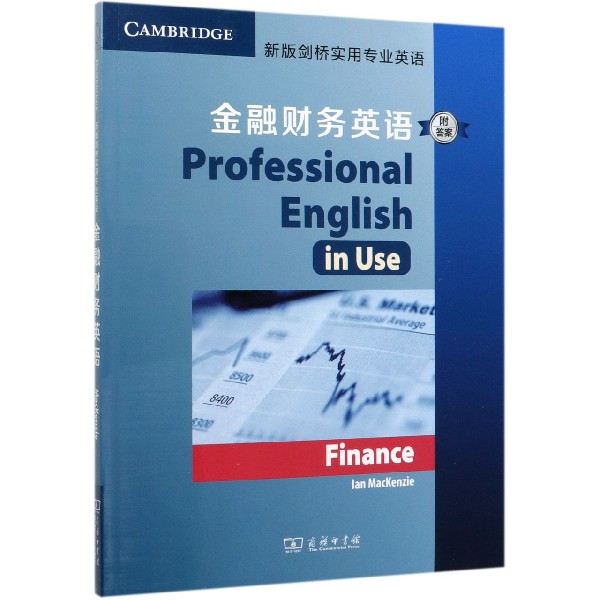
出版社: 商务印书馆
原售价: 68.00
折扣价: 47.60
折扣购买: 金融财务英语(新版剑桥实用专业英语)
ISBN: 9787100183222

伊恩?麦肯齐出生和成长在马萨诸塞,毕业于哈佛大学,曾著有Feast Day。他在商务英语领域有丰富的教学和实践经验。
Accounting and accountancy A Accounting Accounting involves recording and summarizing an organization’s transactions or business deals, such as purchases and sales, and reporting them in the form of financial statements. (See Units 11–14) In many countries, the accounting or accountancy profession has professional organizations which operate their own training and examination systems, and make technical and ethical rules: these relate to accepted ways of doing things. Bookkeeping is the day-to-day recording of transactions. Financial accounting includes bookkeeping, and preparing financial statements for shareholders and creditors (people or organizations who have lent money to a company). Management accounting involves the use of accounting data by managers, for making plans and decisions. B Auditing Auditing means examining a company’s systems of control and the accuracy or exactness of its records, looking for errors or possible fraud: where the company may have deliberately given false information. An internal audit is carried out by a company’s own accountants or internal auditors. An external audit is done by independent auditors: auditors who are not employees of the company. The external audit examines the truth and fairness of financial statements. It tries to prevent what is called ‘creative accounting’, which means recording transactions and values in a way that produces a false result – usually an artificially high profit. There is always more than one way of presenting accounts. The accounts of British companies have to give a true and fair view of their financial situation. This means that the financial statements must give a correct and reasonable picture of the company’s current condition. C Laws, rules and standards In most continental European countries, and in Japan, there are laws relating to accounting, established by the government. In the US, companies whose stocks are traded on public stock exchanges have to follow rules set by the Securities and Exchange Commission (SEC), a government agency. In Britain, the rules, which are called standards, have been established by independent organizations such as the Accounting Standards Board (ASB), and by the accountancy profession itself. Companies are expected to apply or use these standards in their annual accounts in order to give a true and fair view. Companies in most English-speaking countries are largely funded by shareholders, both individuals and financial institutions. In these countries, the financial statements are prepared for shareholders. However, in many continental European countries businesses are largely funded by banks, so accounting and financial statements are prepared for creditors and the tax authorities. “新版剑桥实用专业英语系列”是从剑桥大学出版社引进的一套英文影印书,共6本,分别是《医学英语》《法律英语》《工程英语》《市场营销英语》《管理英语》和《金融财务英语》。